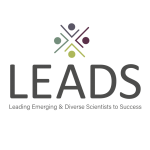

Emerging and diverse scientists face many challenges as they navigate their way through academia. From the pressure to produce impactful research to the need for robust mentoring relationships, it can be difficult to know where to focus one’s energies. That is where LEADS (Leadership Excellence and Academic Development for Success) comes in. This program, sponsored by the National Institute of General Medical Sciences (NIH grant R25 GM116740) and developed by the Institute for Medical Research Education at the University of Pittsbergh, provides early career scientists from Minority Serving Institutions (MSIs) with the tools they need to succeed in academia.
One of the most critical components of LEADS is the Maximizing Mentoring module. Mentoring is critical for career success, yet many early career faculty struggle to develop robust mentoring relationships. In this module, participants identify the areas of expertise and qualities of their ideal mentor. They then identify a mentor or team of mentors using a combination of strategies and resources, including the National Research Mentoring Network, NIH RePORTER, and the broader RCMI community. They also learn how to contact potential mentors and manage mentoring relationships.
In my experience, mentoring is not just about imparting knowledge and wisdom. It is also about listening, providing support, and helping individuals achieve their goals. As a mentor, I have helped diverse scientists succeed in many ways. For example, I have provided advice on how to develop a research question, secure funding, and write grant applications. I have also provided emotional support during difficult times and helped individuals navigate the complex landscape of academia.
Another critical component of LEADS is the Introduction to Team Science module. In this module, participants learn the basics of team science and how to bring together the right mix of collaborators to enhance the success and impact of their research. Assembling the right team and reaping the full benefits of working with a team requires active planning and mindful management. We also review best practices for building and maintaining positive and productive working relationships with diverse collaborators from different disciplines, professions, and social backgrounds.
In my experience, team science is all about collaboration, communication, and respect. It is essential to identify the strengths and weaknesses of each team member and leverage those strengths to achieve common goals. Additionally, communication is critical to ensure that all team members are on the same page and working towards the same objectives. Finally, respect for different backgrounds and perspectives is essential to build a positive and productive working relationship.
LEADS has been a transformative program for me, and I would highly recommend it to any emerging and diverse scientists looking to develop their leadership and mentoring skills. Whether you are just starting your career or are a seasoned academic, LEADS provides a wealth of resources and knowledge to help you succeed.
Here is the link of the LEADS program, I was part of the 2016 cohort : https://icre.pitt.edu/LEADS/leads_programDetails.html
